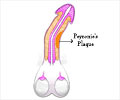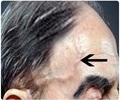The percentage of Americans suffering from stroke is on the rise. Usually patients underwent a minimally invasive procedure to reduce their risk of a stroke by clearing plaque from neck arteries. But studies show that this ha unexpected gains in memory and mental skills.
The findings of the study were presented at a medical conference in Toronto. But further trials have to confirm the results. Then the procedure may allow many elderly people to continue to live independently. Dr. Rodney Raabe, the radiologist who led the research team at the Sacred Heart Medical Center in Spokane, Wash said that the procedure is known as carotid stenting. This was recently developed as an alternative to painful neck surgery, which costs about some $2 billion. In this surgery tiny devices are maneuvered through the circulatory system to the carotid arteries in the neck from a small incision in the thigh.Doctors inflate a balloon to push the plaque into the vessel wall and then implant the stent, to keep the artery open. Dr. Raabe's research team said that stenting typically improves blood flow to the brain. But it an also occasionally unleash a temporary shower of microdebris that can disrupt brain functions resulting in fatal strokes. The team of scientist studied about 100 patients over the last two years to look at whether using a filter to catch most of the debris during the procedure would reduce the disruptions so patients suffered no mental impairment. The data suggest that the benefits outweigh the harm.
Patients performed well in memory tests and so-called executive function tests after the procedure that required them to perform a series of actions to complete a task. The first 30 patients were given follow-up tests after six months in which case Dr. Raabe said that the results were statistically significant. He said that the memory gains were particularly striking for patients who had not suffered ministrokes but whose arteries were more than 90 % blocked. He also said that Medicare should include stenting in to their policy to help people.







